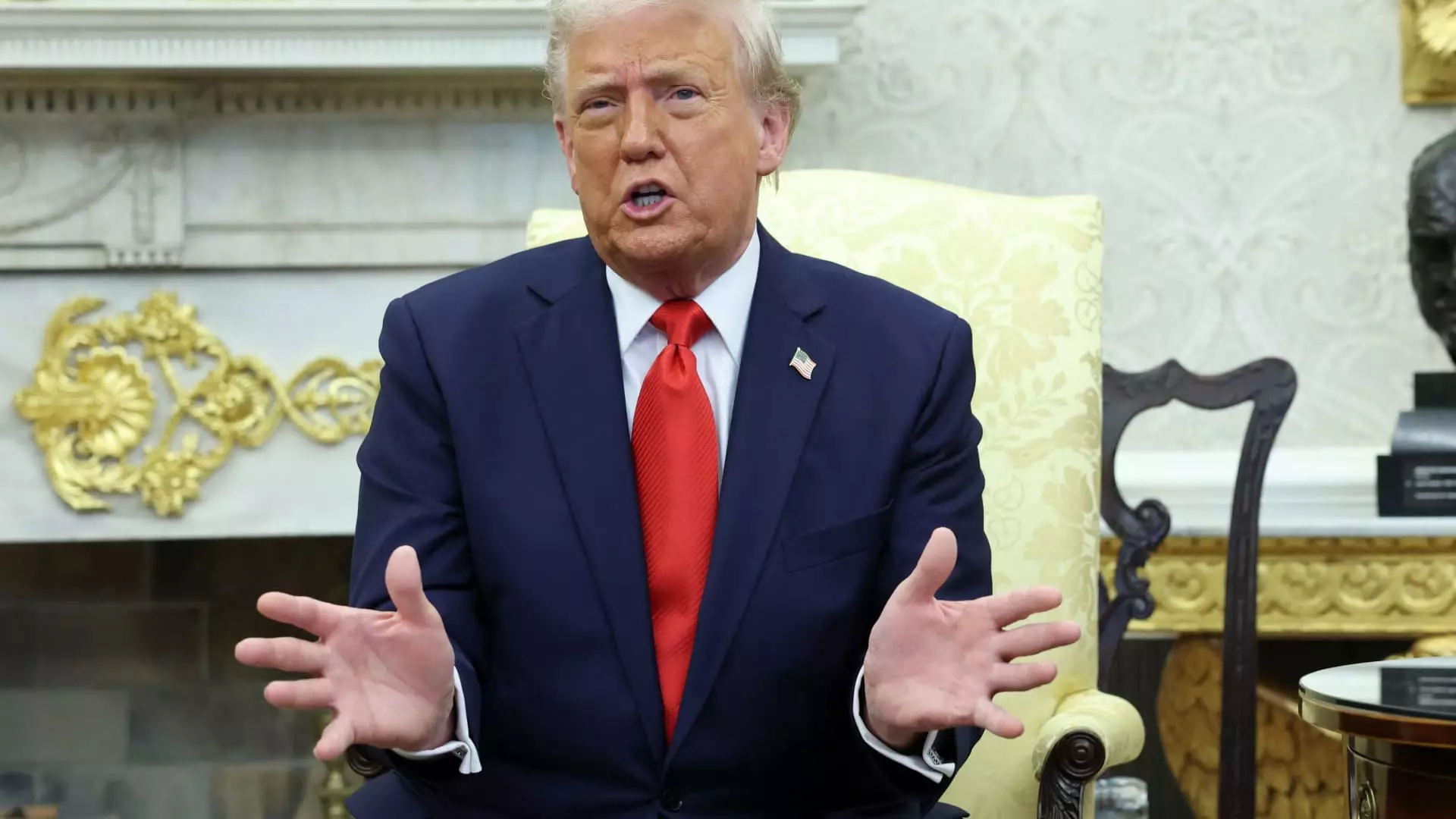In a year marked by uncertainty and volatility, Wall Street has emerged as a surprising beneficiary of the tumultuous scenarios unfurling under the political landscape—a finding that borders on the paradoxical. The recent report revealing that the largest U.S. banks—Goldman Sachs, Morgan Stanley, JPMorgan Chase, and Bank of America—have collectively reached an unprecedented $16.3 billion in stock trading revenue highlights the complexities and contradictions inherent in our financial system. What is astonishing about this figure isn’t just the number itself, which represents a staggering 33% increase from the previous year, but the underlying factors driving this performance during a time when many expected a traditional bullish market cycle.
While the political circumstances tend to induce anxiety, the chaotic environment turns out to be a boon for institutions seeking to capitalize on the uncertainties. Traders are clearly reaping the benefits while the overarching business side of investment banking has been relegated to mere footnote status, overshadowed by profits generated from active trading. The irony here is palpable; the system that was expected to fall apart at the seams has instead found a new mode of survival through swift adaptation and agility on the trading floors.
The Unforeseen Trading Boom
The significant gains seen by Wall Street traders contradict predictions that the presidency of Donald Trump and his administration’s fiscal policies would primarily favor investment banking. Instead, the trading floors are buzzing with activity, fed by a mix of market volatility and institutional investor behavior. Analysts are rightfully labeling these gains as “spectacular” and “extraordinary,” yet isn’t it troubling that such a boom arises from a backdrop of economic uncertainty? The prominence of trading over a merchant banking model points to a dramatic shift in Wall Street’s focus, particularly as professionals prioritize short-term gains over long-standing client relationships.
Investment strategy often involves positioning for long-term outcomes; now, economic tides seem to have shifted to a market where quick trades rule supreme. Yet, what does this say about our economic climate, where the shadows of past crises loom heavily? The fact that institutional investors need to react to upheaval instead of thoughtfully strategizing their long-term objectives only emphasizes the precarious state of the economy.
Future Risks Recontextualized
The impressive first-quarter results are reassuring for giants of the financial industry, but they may also carry the seeds of future risk. Analysts, such as James Shanahan from Edward Jones, have indicated that rising trading volume stands as a double-edged sword. With corporate executives paralysed by uncertainty, their hesitance to make strategic decisions can lead markets to an increasingly one-dimensional path. Additionally, with macroeconomic indicators such as unemployment expected to rise to levels reminiscent of less prosperous days, what does it bode for the rest of the economy?
Regional banks, which lack the luxury of robust trading departments, are sitting precariously as they confront stagnant loan growth. This imbalance could foster a troubling environment where the gap between the powerful and the vulnerable widens even further—a scenario decidedly bad for the broader economy. In essence, Wall Street’s boom carried by agile traders does not reflect a robust economic foundation but rather a market that feeds off fear, uncertainty, and doubt.
The Future of Volatility and Strategy
It seems that if volatility persists—as many analysts predict—Wall Street will continue reaping the benefits. The argument, mirrored by statements from Goldman Sachs’ CEO David Solomon, underscores that the swift execution of trading strategies and finely-tuned market responsiveness can yield short-term profits. But what is often left unsaid is the potential downfall of such a system that relies more on market mechanics than on underlying value and stability.
By shortening time horizons and prioritizing volatility, the financial sector risks creating a scene reminiscent of a ‘casino economy,’ where successful long-term planning becomes almost an obsolete art. The notion of seasoned investment minds navigating their clients through stable opportunities is overshadowed by an urgent desire to keep pace with the rapid ebbs and flows of the market, which can only exacerbate existing inequities.
While the granulated analysis of stock trading successes is often met with applause, it is essential to reflect on what it reveals about our economy. As an advocate for civic responsibility and social equity, it becomes necessary to question whether these remarkable profits signify true health in financial markets or if they merely mask the fragility of our economic systems. In an era where information travels faster than ever, we must advocate for deeper ethical considerations on our trading floors. It’s time to move beyond the triumphalism of numbers and reflect on the broader implications for our communities, businesses, and, ultimately, the American economy as a whole.

